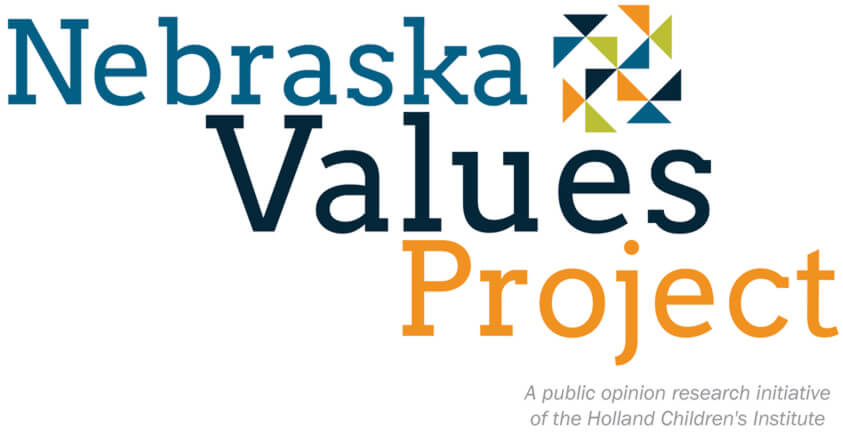The Nebraska Values Project is a public opinion research initiative of the Holland children’s Institute. In partnership with Myers Research & Strategic Services, a live telephone survey was conducted in early November 2017 to measure public opinion among Nebraska voters on public policy issues and demographic research affecting children and working families across Nebraska.

Our polling reveals Nebraska voters believe government economic policies are leaving the middle class behind. Voters in Nebraska believe the best way to build our middle class is to ensure people willing to work hard are given the opportunity and the tools they need. Importantly, there is a clear line of support for creating an opportunity for skills training and jobs with good benefits to strengthen the middle class, versus focusing on spending cuts and changes to public benefits.
Economic Opportunity and The Middle Class
Highlights from Installment II:
- For Nebraskans, home ownership, a secure job, and access to health care are viewed as defining elements of “middle class”.
- One-fifth of Nebraskans have had trouble affording health care and nearly as many could not take leave for a relative’s illness.
- In Nebraska, 9 in 10 blue-collar voters (87%) say government’s policies are helping big corporations while 62% of college-educated voters say the same.
- Nebraskans believe that government’s economic policies are focused on helping big corporations, the wealthy, and foreign companies more than small businesses, blue collar workers, and average families.
- 3 in 10 voters say that government’s economic policies have helped them and their family a little or not at all in the last year.
- Among Nebraska voters, there is broad and deep agreement that the best way to build a stronger middle class is to give people the tools they need (64%) compared to cutting spending on programs in order to reduce dependence on government (25%)
- Two-thirds of Nebraska voters agree incentivizing businesses to create quality jobs with good wages and benefits will help strengthen the middle class (65%) in comparison to the statement that it will hurt businesses and become too costly (17%)
The margin of error associated with these data at a 95 percent confidence level is +/-4.0 percent.
Shareable graphics are also available on our Twitter page @HCInstitute